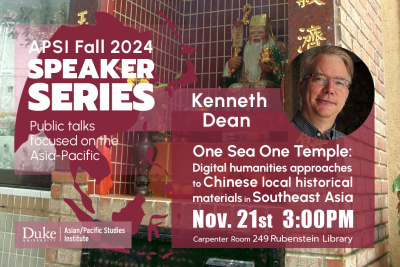Sponsor
Asian Pacific Studies Institute (APSI)
Co-Sponsor(s)
Asian & Middle Eastern Studies (AMES); Asian American and Diaspora Studies; Global Asia Initiative; Religious Studies
Asian Pacific Studies Institute (APSI)
Asian & Middle Eastern Studies (AMES); Asian American and Diaspora Studies; Global Asia Initiative; Religious Studies
